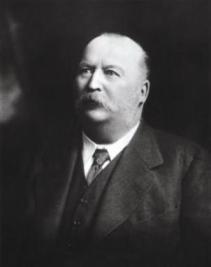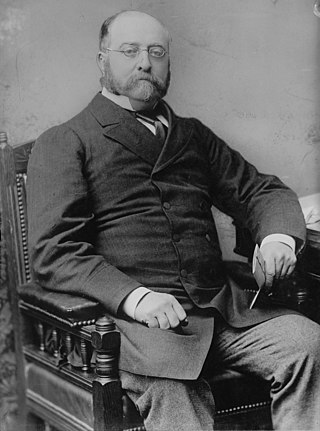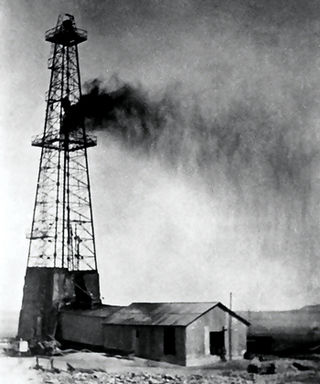Related Research Articles

William Knox D'Arcy was a British-Australian businessman who was one of the principal founders of the oil and petrochemical industry in Persia (Iran). The D’Arcy Concession was signed in 1901 and allowed D'Arcy to explore, obtain, and market oil, natural gas, asphalt, and ozokerite in Persia.
Masjed Soleyman is a city in the Central District of Masjed Soleyman County, Khuzestan province, Iran, serving as capital of both the county and the district.

Khuzestan Province is one of the 31 provinces of Iran. Its capital is the city of Ahvaz. Located in the southwest of the country, the province borders Iraq and the Persian Gulf, covering an area of 63,238 square kilometres (24,416 sq mi). Its capital is the city of Ahvaz. Since 2014, it has been part of Iran's Region 4.

The Anglo-Persian Oil Company (APOC) was a British company founded in 1909 following the discovery of a large oil field in Masjed Soleiman, Persia (Iran). The British government purchased 51% of the company in 1914, gaining a controlling number of shares, effectively nationalizing the company. It was the first company to extract petroleum from Iran. In 1935 APOC was renamed the Anglo-Iranian Oil Company (AIOC) when Reza Shah formally asked foreign countries to refer to Persia by its endonym Iran.

Mozaffar ad-Din Shah Qajar, was the fifth Qajar shah (king) of Iran, reigning from 1896 until his death in 1907. He is often credited with the creation of the Persian Constitution of 1906, which he approved of as one of his final actions as shah.

Sir Henry Drummond Charles Wolff, known as Henry Drummond Wolff, was an English diplomat and Conservative Party politician, who started as a clerk in the Foreign Office.

The National Iranian Oil Company is a government-owned national oil and natural gas producer and distributor under the direction of the Ministry of Petroleum of Iran. NIOC was established in 1948 and restructured under The Consortium Agreement of 1954. NIOC ranks as the world's second largest oil company, after Saudi Arabia's state-owned Aramco.

The Burmah Oil Company was a leading British oil company which was once a constituent of the FTSE 100 Index. In 1966, Castrol was acquired by Burmah, which was renamed Burmah-Castrol. BP Amoco purchased the company in 2000.

Iran–United Kingdom relations are the bilateral relations between the United Kingdom and Iran. Iran, which was called Persia by the West before 1935, has had political relations with England since the late Ilkhanate period when King Edward I of England sent Geoffrey of Langley to the Ilkhanid court to seek an alliance.

The Persian Gulf Residency was a subdivision of the British Empire from 1822 until 1971, whereby the United Kingdom maintained varying degrees of political and economic control over several states in the Persian Gulf, including what is today known as the United Arab Emirates and at various times southern portions of Iran, Bahrain, Kuwait, Oman, and Qatar.

While the local use of oil goes back many centuries, the modern petroleum industry along with its outputs and modern applications are of a recent origin. Petroleum's status as a key component of politics, society, and technology has its roots in the coal and kerosene industry of the late 19th century. One of the earliest instances of this is the refining of paraffin from crude oil. Abraham Gesner developed a process to refine a liquid fuel from coal, bitumen and oil shale; it burned more cleanly and was cheaper than whale oil. James Young in 1847 noticed a natural petroleum seepage when he distilled a light thin oil suitable for use as lamp oil, at the same time obtaining a thicker oil suitable for lubricating machinery. The world's first refineries and modern oil wells were established in the mid-19th century. While petroleum industries developed in several countries during the nineteenth century, the two giants were the United States and the Russian Empire, specifically that part of it that today forms the territory of independent Azerbaijan. Together, these two countries produced 97% of the world's oil over the course of the nineteenth century.

Antoine Kitabgi Khan was a Persian general who was director general of customs in Persia from 1881 to 1893 and initiated important concessions during the reigns of Nasseredin shah and his successor Mozaffareddin shah. He was in particular the initiator of the oil concession granted in 1901 to William Knox D'Arcy which gave birth to British Petroleum.

The United Kingdom v Iran [1952] ICJ 2 was a public international law dispute between the UK and Iran. This case concerned the nationalization of Iran's oil which had been, in large part, controlled by the United Kingdom since the early 20th century.

Proven oil reserves in Iran, according to its government, rank fourth largest in the world at approximately as of 2013, although it ranks third if Canadian reserves of unconventional oil are excluded. This is roughly 10% of the world's total proven petroleum reserves. At 2020 rates of production, Iran's oil reserves would last 145 years if no new oil was found.

The D'Arcy Concession was a petroleum oil concession that was signed in 1901 between William Knox D'Arcy and Mozzafar al-Din, Shah of Persia. The oil concession gave D'Arcy the exclusive rights to prospect for oil in Persia. During this exploration for oil, D'Arcy and his team encountered financial troubles and struggled to find sellable amounts of oil. Facing high costs, they were about to give up but eventually struck large commercial quantities of oil in 1908. The Burmah Oil Company created the Anglo-Persian Oil Company to take over the concession in 1909.

Saudi Arabian oil was first discovered by the Americans in commercial quantities at Dammam oil well No. 7 in 1938 in what is now modern day Dhahran.
The National Bank of Turkey was a commercial bank in Turkey founded in 1909. The majority capital came from founding shareholders Sir Ernest Cassel, Lord Revelstoke and Sir Alexander Henderson. The initial impetus for the bank's creation came about as a result of the Young Turk Revolution. The bank operated until 1931.

The nationalization of the Iranian oil industry resulted from a movement in the Iranian parliament (Majlis) to seize control of Iran's oil industry, which had been run by private companies, largely controlled by foreign interests. The legislation was passed on March 15, 1951, and was verified by the Majlis on March 17, 1951. The legislation led to the nationalization of the Anglo-Iranian Oil Company (AIOC). The movement was led by Mohammad Mosaddegh, a member of the Majlis for the National Front and future prime minister of Iran. The movement to nationalize the oil industry was the reaction to the following concessions made by Iran to foreign powers: the Reuter concession of 1872, proceeding letter,D'Arcy Concession?] the 1933 agreement between the Iranian government and AIOC, and the Gas-golshaian[?] contract. According to the political scientist Mark J. Gasiorowski, the oil nationalization movement had two major results: the establishment of a democratic government and the pursuit of Iranian national sovereignty.

There is a long history of the petroleum industry in Iraq.

The Emirate of Muhammara, also known as the Sheikhdom of Muhammara , was an autonomous emirate in modern-day Khuzestan province in Iran. During the late 19th and early 20th centuries, lasting until the then ruler of Iran, Reza Shah, re-established full control over the region in 1925. Officially it was part of Qajar Iran, but the broader Khuzestan region had already enjoyed a large degree of autonomy under the previous rule of the Banu Ka'b (1740–1840), under whom it had become thoroughly Arabized.
References
- 1 2 3 4 Sorenson, Ray (2009). "ABSTRACT: Who Was First?". Petroleum History Institute. Retrieved 8 September 2023.
- ↑ "HD Stock Video FootageConstruction of an oil drilling tower in Masjed Soleyman, Iran by the British syndicate organized by William D'Arcy". CriticalPast LLC. Retrieved 8 September 2023.
- ↑ "First oil – 1901-1908". bp global. 26 May 1908. Retrieved 8 September 2023.
- ↑ Yergin, Daniel (1991). The Prize, The Epic Quest for Oil, Money & Power. New York: Simon & Schuster. pp. 138–143. ISBN 9780671799328.
- ↑ "HD Stock Video FootageWilliam Knox D'Arcy's Oil exploration team from Great Britain, led by George B. Reynolds". CriticalPast LLC. Retrieved 8 September 2023.
- ↑ Kinzer, Stephen (2003). All the Shah's Men: An American Coup and the Roots of Middle East Terror. Hoboken: John Wiley & Sons. pp. 48–49. ISBN 978-0-471-26517-7.